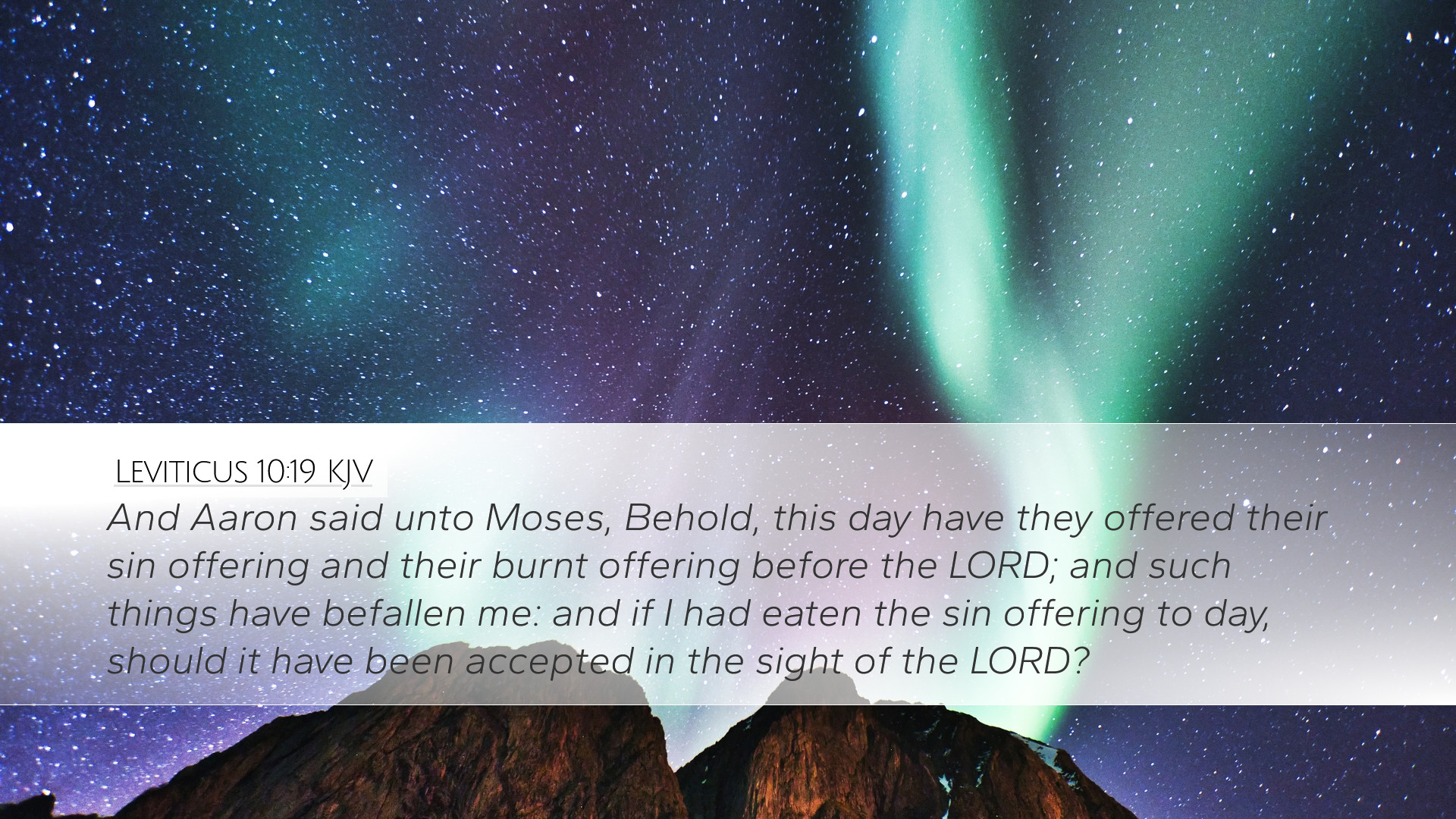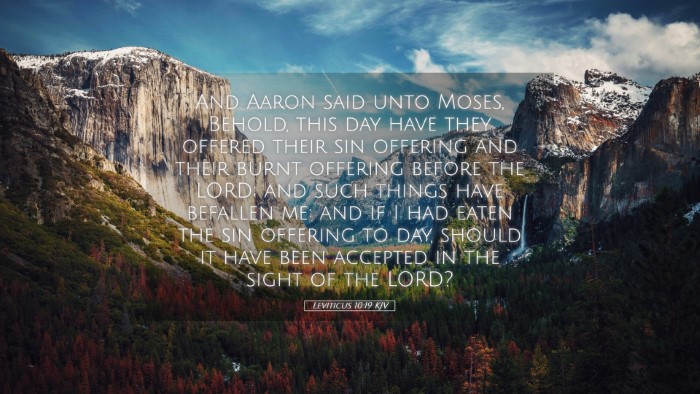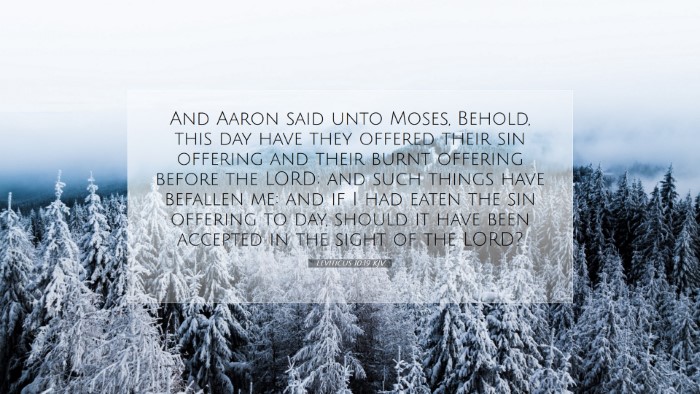Commentary on Leviticus 10:19
Bible Verse: Leviticus 10:19 - "And Aaron said to Moses, 'Behold, this day they have offered their sin offering and their burnt offering before the LORD; and such things have befallen me: and if I had eaten the sin offering today, should it have been accepted in the sight of the LORD?'
Introduction
Leviticus 10:19 is a poignant moment in the narrative surrounding Aaron and the priestly duties instituted by God for Israel. This verse highlights critical themes of holiness, the sacrificial system, and the implications of obedience to divine ordinances. The commentaries of Matthew Henry, Albert Barnes, and Adam Clarke provide rich insights into the meaning and implications of this scripture.
The Context of Leviticus 10
This chapter presents the aftermath of the tragic event involving Nadab and Abihu, Aaron's sons, who offered unauthorized fire before the Lord and were consumed by divine judgment. The gravity of this incident cuts to the heart of what it means to serve God, particularly in leadership roles. John Gill emphasizes that the actions of Nadab and Abihu serve as a severe warning against irreverence in worship, setting the stage for Aaron's response in verse 19.
Aaron's Response
Aaron's words in this verse reflect deep concern and contemplation. These observations can be dissected into several key components:
- Recognition of God's Holiness: Aaron acknowledges the sanctity of the offerings and the severe consequences that have transpired, indicating an awareness of the holiness that surrounds divine worship.
- Implications of His Actions: He questions whether consuming the sin offering after such a tragedy would be seen as irreverent, revealing a deep understanding of the implications of worship practices.
- Emotional Turmoil: Barnes notes the emotional burden Aaron carries, contemplating whether his actions would be accepted by the Lord in light of the day's events. This internal conflict speaks to the weight of the priestly office.
The Nature of Offerings
The sin offering and burnt offering were established to atone for sin and acknowledge God’s sovereignty. Adam Clarke elaborates that the sin offering was designed for unintentional sins and maintaining the community's holiness. By implying that he refrained from eating it, Aaron was signaling that he was not in a state to maintain the ritual purity expected by God under the extraordinarily grave circumstances.
Theological Implications
The theological implications of Aaron's response are manifold:
- Understanding of Atonement: This incident elucidates the seriousness of sin and the need for proper atonement processes. The disposition of the offerings, particularly in light of the priest’s purity, speaks volumes about the nature of sacrifice.
- Divine Acceptance: Aaron's concern about God's acceptance of the offerings illustrates the significance of intention and the condition of the heart in worship. Henry articulates that God desires an engaged and sincere heart rather than mere adherence to ritual.
- Leadership and Accountability: Leaders are held to a higher standard in their relationship with God and their duties. The tragic end of Nadab and Abihu serves to remind Aaron (and future generations) of the seriousness of approaching God with a reverent spirit.
Application for Today’s Faith Community
This passage, while historical, speaks profoundly to contemporary believers. The reverence for God’s holiness must remain paramount in worship settings. It beckons the need for leaders to be grounded in scripture and understanding before entering into ministry. Henry’s admonitions on the necessity of humility and sincerity resonate with modern congregants and church leaders alike.
Conclusion
Leviticus 10:19 encapsulates a profound theological discourse that transcends time, inviting pastors, students, theologians, and scholars to reflect on the depths of God’s holiness, the nature of worship, and the considerations of sacrificial offerings. The collective insights from the public domain commentaries provide a multifaceted understanding that serves to edify and challenge the faith community into deeper reverence and engagement with scriptural truths.


